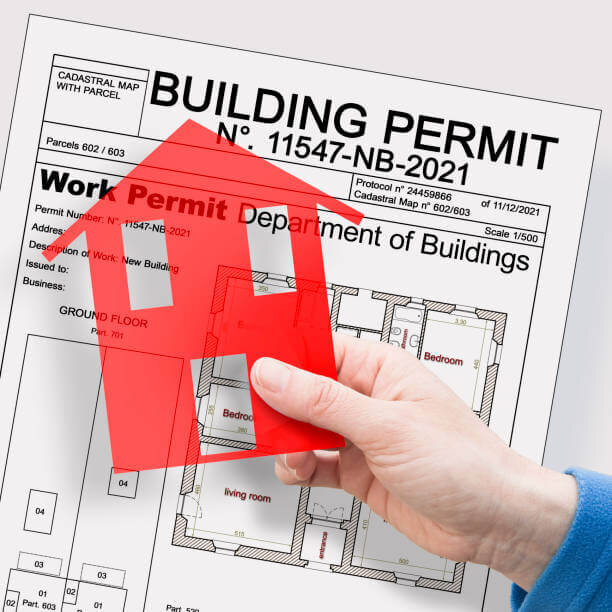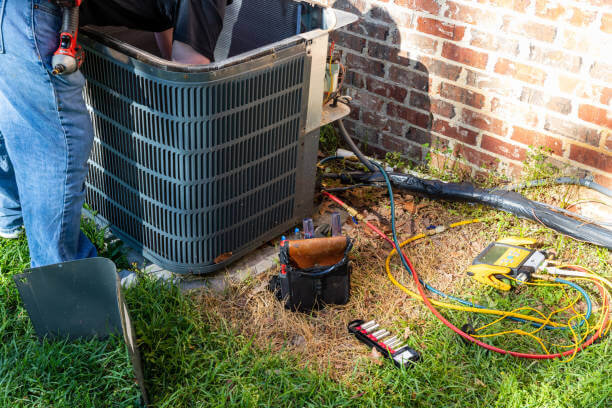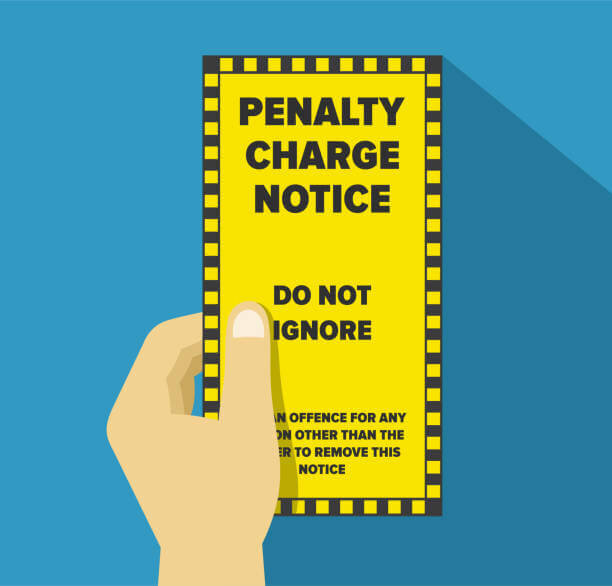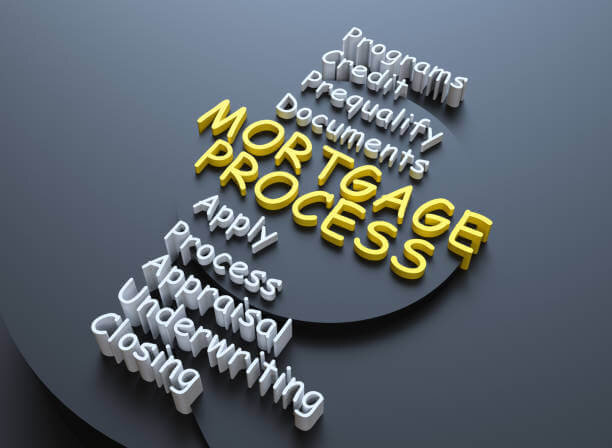
Welcome to the ultimate guide on code violations in real estate! In this post, you’ll learn everything you need to know about code violations and their consequences. From safety risks and liability to financial costs and damage to reputation, we’ll cover it all. You’ll even discover how real estate investors like R&H Distressed Properties can be a solution to selling a property with code violations. So let’s get started!
Code violations in real estate can be a serious issue, with far-reaching consequences for property owners. While it may be tempting to ignore code violations or put off repairs, doing so can lead to significant financial and legal consequences, as well as damage to reputation and safety risks. In this post, we’ll explore each of these consequences in detail, as well as ways that property owners can avoid them.
Safety Risks and Liability

One of the most important reasons to address code violations in real estate is the potential safety risks they pose to tenants and visitors. Code violations can take many forms, from faulty wiring or plumbing to improper construction techniques, and more. If left unaddressed, these violations can create serious safety hazards, including the risk of fire, electrical shock, and other accidents.
For example, faulty electrical wiring can cause fires, and plumbing leaks can lead to water damage and mold growth, which can cause respiratory problems for tenants. Improperly constructed stairs or railings can lead to falls, and the lack of proper ventilation can lead to dangerous levels of carbon monoxide or other harmful gases.
But it’s not just the safety risks themselves that are a concern. Property owners also face legal liability if someone is injured or killed due to a code violation on their property. In some cases, property owners can even face criminal charges if it’s determined that they were aware of the violation and failed to take action to correct it.
For example, if a tenant is injured due to a code violation such as a broken railing, the rental property owner may be liable for any medical expenses or lost wages resulting from the injury. In extreme cases, such as a fatal accident, property owners may be facing wrongful death lawsuits or criminal charges.
To avoid safety risks and legal liability, property owners must take a proactive approach to code violations, addressing them as soon as they are identified. This includes investing in regular inspections and maintenance to ensure that properties are up to code and in good repair.
Regular inspections can help property owners identify potential safety hazards before they become a problem, allowing them to take corrective action and avoid potential liability. It’s also important to address code violations promptly and thoroughly, making sure that repairs are completed in compliance with building codes and local regulations.
Investing in ongoing maintenance and inspections is not only important for safety reasons but can also help property owners avoid costly repairs and legal fees down the line. By staying on top of maintenance and repairs, property owners can preserve the value of their properties and avoid the negative consequences of ignoring code violations. (Read more about selling without code violations or inspections)
In addition to regular maintenance and inspections, property owners should also stay up to date on local building codes and regulations. This can help ensure that their properties are in compliance and can also help them navigate any potential code violations that arise.
Financial Consequences

Ignoring code violations can have a significant impact on a property owner’s finances. Not only can code enforcement agencies levy fines and penalties for violations, but legal fees associated with defending against legal action can be costly, especially if the violation has led to injury or other damages. Additionally, code violations can reduce property value and make it difficult to sell, which can have long-term financial consequences for property owners.
Ignoring code violations can have significant financial consequences for property owners, especially in terms of fines and penalties imposed by code enforcement agencies. The amount of fines and penalties can vary depending on the severity of the violation, but they can add up quickly, and in some cases, can be substantial.
For example, if a property owner fails to correct a violation within the specified time frame, they may be subject to daily fines until the violation is corrected. In some cases, these daily fines can be significant, and can quickly add up to thousands of dollars. This can create a significant financial burden for property owners, especially if the violation is not addressed promptly.
In addition to fines and penalties, ignoring code violations can also lead to legal action, which can be costly in terms of legal fees and court costs. Property owners who are sued for code violations may also be liable for damages if someone is injured or killed as a result of the violation. This can further add to the financial burden of ignoring code violations.
Another financial consequence of ignoring code violations is the impact on property market value itself. Properties with code violations may be more difficult to sell, and may sell for less than their fair market value. Potential buyers may be hesitant to purchase a property with known code violations, or they may require a significant discount to compensate for the risk. This can make it difficult for property owners to sell their properties quickly or at a full fair market value price.
Furthermore, if a property has significant code violations, it may not be eligible for traditional financing, which can further limit the pool of cash offers from potential buyers. This can lead to a longer selling process, and potentially lower offers for cash buyer of the property.

In contrast, taking a proactive approach to addressing code violations can help to avoid these financial consequences. By investing in regular inspections and maintenance, property owners can identify and address potential violations before they become serious issues. This can help to avoid fines and legal action, as well as preserve property value and attract potential buyers.
In cases where a property owner is facing code violations and is unable to address them on their own, working with a local real estate investor or local cash buyers like California House Buyers can be a viable option. Cash buyer companies can often navigate code violations and handle the necessary repairs or renovations, allowing the property owner to avoid fines and other financial consequences. Plus, selling to companies that buy houses for cash can often result in a faster sale, less hassle, and the ability to sell a property as-is.
Legal fees associated with defending against legal action can also be costly for property owners. If a code violation has led to injury or other damages, property owners may face lawsuits or other legal action. Defending against these legal actions can be costly, especially if they result in a settlement or judgment against the property owner.
In addition to fines and legal fees, code violations can also reduce property market value, and make it difficult to sell. Potential buyers may be hesitant to purchase a property with known code violations, or they may require cash sale or a significant discount to compensate cash buyers for the risk. This can make it difficult for property owners to sell their properties quickly or at a fair price.
To avoid these financial consequences, property owners must take a proactive approach to maintenance and repairs. Regular inspections and maintenance can help identify potential code violations before they become more significant problems. Property owners should also ensure that their properties are up to code and in good repair, which can help to avoid fines and legal action. Investing in repairs and maintenance can also preserve property value and make it more attractive to potential buyers.
In addition to these proactive measures, property owners can also consider working with a real estate investor like California House Buyers. Real estate investors, or companies that buy houses, are experienced in navigating code violations and can often handle the necessary repairs or renovations to bring a property up to code. This can help property owners avoid the financial consequences of ignoring code violations and sell their properties more quickly and at a fair price.
Ignoring code violations can have significant financial consequences for property owners. Fines, legal fees, and reduced property value can all impact a property owner’s finances in the short and long term. By taking a proactive approach to maintenance and repairs and working with local real estate investors if necessary, property owners can avoid these consequences and protect their financial interests.
Damage to Reputation

A property owner’s reputation is a vital aspect of their own business model, and ignoring code violations can have a significant impact on it. Negative reviews from tenants or neighbors can be damaging to a property owner’s image, as can media coverage of code violations. Even if a property owner is able to address code violations after they have been discovered, the negative impact on their reputation may persist, making it harder to attract quality tenants or build positive relationships with neighbors and the community.
For example, a landlord in New York City was fined over $500,000 for multiple violations, including illegal conversions, gas leaks, and exposed electrical wires. The landlord was also cited for neglecting to provide heat and hot water to tenants. The story was covered by local media outlets and resulted in negative publicity for the landlord, as well as calls for stronger enforcement of building codes in the city.
To avoid similar negative publicity, property owners should take proactive steps to address code violations, such as conducting regular inspections to identify potential code violations, addressing issues promptly to prevent further damage or safety hazards, communicating openly and transparently with tenants and neighbors about any issues that arise with the property, investing in community events or initiatives to build positive relationships with neighbors and the community, responding promptly to tenant concerns and complaints, and being proactive in addressing any potential safety hazards or code violations.

It is important to note that not all code violations are created equal when it comes to reputation damage. Certain violations, such as those that pose a direct threat to tenant safety, can have a more severe impact on a property owner’s reputation than others. For example, a landlord who fails to address mold or water damage may not face as much negative publicity as one who neglects to provide working smoke detectors.
In addition to addressing code violations, property owners can also take steps to build positive relationships with their tenants and the community. This can include investing in community events or initiatives, responding promptly to tenant concerns, and being transparent and open about any issues that arise with the property.
One way to build positive relationships with tenants is to prioritize their safety and comfort by addressing code violations promptly. This can help to create a sense of trust and respect between the property owner and their tenants, which can ultimately lead to a more positive reputation in the community.
Another way to build positive relationships with the community is to invest in community events or initiatives. By supporting local events or initiatives, property owners can demonstrate their commitment to the community and build goodwill among neighbors. This can help to create a positive image for the property owner and their properties.
It’s also important for property owners to respond promptly and effectively to tenant concerns and complaints. This includes addressing any code violations that may be impacting tenants, as well as providing prompt and effective solutions to any other issues that arise with the property. By being responsive and attentive to tenant needs, property owners can build positive relationships with their tenants and create a positive image in the community.
Ultimately, the key to avoiding damage to reputation is to take a proactive approach to addressing code violations and investing in ongoing maintenance and repairs. By addressing code violations promptly and effectively, property owners can help to ensure the safety and comfort of their tenants, as well as build positive relationships with the community. This can ultimately help to preserve property value over the long term and attract quality tenants who value safety and a well-maintained property.

However, it’s also important to note that reputation damage is not limited to code violations that are within a property owner’s control. Negative publicity can also arise from factors outside of a property owner’s control, such as a high crime rate in the area or a negative perception of the home’s fair market value in the neighborhood. In these cases, property owners may need to take additional steps to build positive relationships with the community and demonstrate their commitment to the safety and well-being of their tenants.
Difficulty Obtaining Permits
When property owners ignore code violations, they run the risk of having to deal with difficulties in obtaining permits for renovations or repairs. Code enforcement agencies can subject property owners to greater scrutiny when applying for permits, which can lead to delays or even denials. This can cause a variety of issues for property owners, from reduced property value to the inability to attract quality tenants.

One of the reasons that code enforcement agencies may subject property owners to greater scrutiny when applying for permits is because they want to ensure that the property is up to code before any renovations or repairs take place. This is particularly important for projects that involve major changes to the structure or systems of the building, such as adding new rooms or changing the electrical or plumbing systems.
In addition to delays in obtaining permits, ignoring code violations can also lead to increased costs for property owners. For example, if a property owner wants to make renovations or repairs to a property that has known code violations, they may need to spend additional money to bring the property up to code before the work can be done. This can add significant costs to the project, making it more difficult for property owners to justify the investment.
Ignoring code violations can also impact a property owner’s ability to attract tenants. Potential renters may be looking for a property that is in good repair and up to code, and may be hesitant to rent a property that has known code violations. This can make it more difficult for property owners to find tenants and fill vacancies, which can impact their bottom line.

To avoid difficulties in obtaining permits, property owners must take a proactive approach to code violations and invest in ongoing maintenance and repairs. This means being vigilant about identifying potential issues and addressing them promptly, rather than waiting for code enforcement agencies to discover them. It also means investing in regular inspections and maintenance to ensure that properties are up to code and in good repair.
Another important step in avoiding difficulties in obtaining permits is to work closely with code enforcement agencies. Property owners can benefit from developing positive relationships with local code enforcement officials and staying up to date on the latest codes and regulations. This can help property owners to stay ahead of potential issues and ensure that their properties are in compliance with all relevant codes and regulations.

It’s also important for property owners to be transparent and open with code enforcement agencies when applying for permits. This means being upfront about any known code violations and taking steps to address them before applying for permits. Property owners can also benefit from working with contractors who have experience navigating the permitting process and who are familiar with local codes and regulations.
By taking these steps, property owners can avoid difficulties in obtaining permits for renovations or repairs, as well as reduce the risk of delays or denials. This can help to ensure that properties are up to code and in good repair, making them more attractive to home buyers and potential renters and ultimately preserving property value over the long term.
It’s important to note that obtaining permits is not just a matter of compliance with regulations. Proper permitting ensures that work is done safely and to code, which is critical for the safety and well-being of tenants and the community. Ignoring code violations not only makes it more difficult to obtain permits, but it can also put tenants and others at risk.
Ignoring code violations can lead to difficulties in obtaining permits for renovations or repairs, as well as increased costs and reduced property value. To avoid these issues, property owners must take a proactive approach to code violations and invest in ongoing maintenance and repairs. By being vigilant about identifying potential issues, working closely with code enforcement agencies, and staying up to date on the latest codes and regulations, property owners can ensure that their properties are up to code and in good repair, making them more attractive to potential renters and ultimately preserving property value over the long term.
Code Enforcement Action

Code enforcement agencies are responsible for ensuring that properties are safe and up to code, and they have the power to take a variety of actions if code violations are not addressed. These actions can range from notices of violation to legal action and fines. Ignoring code violations can have serious consequences for property owners, including daily fines and even legal action. Property owners who fail to comply with enforcement action may find themselves in a downward spiral of fines, legal action, and decreased property value.
One of the first steps that a code enforcement agency may take is to issue a notice of violation. This notice typically outlines the code violations that have been identified and provides a deadline for the property owner to address them. If the property owner fails to address the violations by the deadline, the agency may issue fines or take legal action.

Fines for code violations can be significant and can add up quickly. In some cases, fines may be levied on a daily basis until the violation is addressed, which can create a significant financial burden for property owners. In addition to fines, code enforcement agencies may take legal action against property owners who fail to comply with notices of violation. This can result in additional legal fees and can damage a property owner’s reputation in the community.
Ignoring code violations can also have a negative impact on property value. Potential buyers may be hesitant to purchase a property with known code violations, which can make it difficult for property owners to sell their properties quickly or at a fair price. Additionally, code enforcement agencies may subject a property owner to greater scrutiny when applying for permits for renovations or repairs, which can lead to delays or even denials.
To avoid code enforcement action, property owners must take a proactive approach to addressing code violations and invest in ongoing maintenance and repairs. This means being vigilant about identifying potential issues and addressing them promptly, rather than waiting for code enforcement agencies to discover them. It also means communicating openly and transparently with tenants and neighbors about any issues that arise, and taking steps to address their concerns as quickly as possible.

Regular inspections and maintenance are key to preventing code violations and avoiding fines and legal action. By conducting regular inspections, property owners can identify potential code violations before they become major issues. Addressing issues promptly can also help to prevent further damage or safety hazards, which can reduce the risk of fines or legal action.
In addition to regular inspections and maintenance, property owners can also invest in ongoing repairs and renovations to keep their properties up to code and in good repair. This can help to prevent future code violations and can make it easier to obtain permits for renovations or repairs.
It’s also important for property owners to communicate openly and transparently with tenants and neighbors about any issues that arise with the property. This includes providing regular updates on repairs or renovations, as well as responding promptly to tenant concerns and complaints. By being proactive in addressing potential issues, property owners can build positive relationships with tenants and neighbors, which can ultimately help to prevent code enforcement action and preserve property value over the long term.
Code enforcement action can have serious consequences for property owners who ignore code violations. Fines and legal action can create a significant financial burden, while decreased property value can make it difficult to attract quality tenants or sell the property at a fair price. To avoid code enforcement action, property owners must take a proactive approach to addressing code violations and invest in ongoing maintenance and repairs. This means conducting regular inspections, addressing issues promptly, and communicating openly and transparently with tenants and neighbors. By taking these steps, property owners can avoid fines and legal action, preserve property value, and build positive relationships with tenants and the community.
California House Buyers

Selling a house fast with code violations to a traditional homebuyer can be challenging for home sellers. Potential home buyers may require significant repairs or renovations to bring the property up to code, which can be costly and time-consuming for home sellers. In addition, many homebuyers may be hesitant to purchase a property with known code violations, or some home buyers may require a significant discount to compensate for the risk.
However, cash buyer companies, or companies that buy ugly houses can often provide a viable option for property owners looking to sell a property with code violations. Real estate investors that buy houses companies, like California House Buyers specialize in purchasing distressed properties and independent real estate investors can often navigate code violations and handle necessary repairs or renovations, allowing the property owner to avoid the consequences of ignoring code violations. You won’t have to deal with multiple cash offers, you final cash offer will give you the assurance you need.

One benefit of selling to a cash home buyer or real estate investor is that the cash buyer company can often close the sale quickly with a fair cash offer. Cash offers have many benefits over traditional homebuyers with financing. The main benefit is that they buy houses for a final cash offer. When selling with a real estate agent, traditional homebuyers may require several weeks or even months to complete the purchase process, including obtaining financing and completing a thorough inspection of the property. In contrast cash home buyers however, or real estate investors, typically have the cash on hand to purchase the house fast, the closing date is often within a matter of days.
Cash Buyers

In addition, selling to an investment firm, cash companies or a real estate investor can often result in less hassle for the property owner than traditional sale does. Unlike with a real estate agent, California Cash Buyers typically handle all aspects of the sale process, including paperwork and closing costs. The closing date is often flexible, from as little as a week, to 3 months. This can be particularly helpful for property owners who are facing financial difficulties or other challenges that may make it difficult to manage the process themselves.
Pay Cash
Another benefit of selling to a real estate investor or cash buyer is that the investor cash buyer can often buy houses as-is paying cash, without requiring the property owner to invest in costly repairs or renovations. This cash sale can be particularly helpful for property owners who are facing financial difficulties and may not have the resources to make necessary repairs or bring the property up to code. Unlike an agent assisted sale, there is no need to make any repairs or updates. Traditional buyers who go through an experienced real estate agent often want to negotiate the the home’s sale price down after finding out the true condition.

However, it’s important to note that selling to a cash buyer company may not always result in the highest possible final sale price, for the property. Cash house buyers typically purchase properties at a discount to local market, taking into account the cost of repairs and renovations and the potential risk associated with code violations. This means that property owners may not receive the same sale price that they would receive if they were able to sell the property open market with a real estate agent to as a traditional sale.

In addition, it’s important for property owners to work with reputable cash house buyers who have a track record of successfully buying houses, navigating code violations and completing purchases in a timely and efficient manner. Not all companies are the same. Property owners should research potential cash home buying companies, buyers and real estate investors carefully and ask for references or reviews of the individual cash buyers or company from past clients to ensure that they are working with a reputable and trustworthy, home buying cash companies or investor. In doing so, multiple cash offers will not be necessary.
Selling a property with code violations with a real estate agent, to traditional home buyers can be challenging, and many home buyers often may require significant repairs or renovations to bring the property up to code. However, companies that buy houses can often provide a viable option for property owners looking to sell a property with code violations, allowing them to avoid the financial and legal consequences of ignoring code violations. While selling to companies that buy houses may not always result with as much money as selling with real estate agents, it can provide a competitive cash offer, less closing costs, no real estate agent commission, and a fast and hassle-free solution for property owners who are facing financial difficulties or other challenges.
Closing Costs
Closing costs can be a significant burden for homeowners looking to sell their properties. They include a myriad of fees such as escrow fees, title insurance costs, attorney fees, and potentially realtor commissions, all of which can quickly add up to a sizeable amount. For homeowners with properties in less than optimal condition, often referred to as “ugly houses,” these costs can significantly reduce the net proceeds from the sale. That’s where the benefit of selling to a cash buyer comes in.

Cash buyers, often seen advertising “we buy houses for cash,” provide a simple and effective solution for homeowners who wish to sell their property quickly and without the added stress and cost of a traditional sale. Cash buyers purchase properties “as-is”, meaning they don’t require the homeowner to make any costly repairs or renovations to the property before the sale. This can be particularly beneficial for those with “ugly houses” that may require a significant investment to bring up to market standard.
Moreover, selling to a cash buyer can often lead to lower closing costs. Because cash transactions are typically faster and more straightforward, there’s no need for lender appraisals or mortgage underwriting, which can further reduce the closing costs. Additionally, cash buyers are often willing to take on some or all of the closing costs themselves, making the process even more financially beneficial for the seller. So, not only does selling to a cash buyer make the process easier and quicker, but it can also be more profitable for the seller, particularly for those with “ugly houses” who might otherwise struggle to find a buyer.
The Importance of Ongoing Maintenance and Inspections
The best way to avoid code violations is to ensure that your property is in good repair and up to code. This means investing in ongoing maintenance and inspections to identify and address potential code violations before they become a problem. Regular inspections can help you catch issues early and avoid the negative consequences of ignoring code violations.
Investing in ongoing maintenance and inspections is essential for all property owners, regardless of the age or condition of their properties. By staying on top of maintenance and repairs, property owners can avoid the financial, legal, and reputational consequences of ignoring code violations.
Buy Houses For Cash
In conclusion, ignoring code violations can have serious consequences for property owners. From safety risks and legal liability to financial costs and damage to reputation, the consequences of ignoring code violations can be severe. However, by taking a proactive approach to maintenance and working with a home buying company like California House Buyers, property owners can avoid these consequences and even turn a potentially difficult situation into a positive one.
Do You Need a Cash Buyer?

Selling a property can be challenging for many property owners, especially if they are facing code violations or extensive repairs. However, working with a cash house buyer like R&H Distressed Properties at www.rhdistressed.com can provide numerous benefits. Cash buyers or cash house buyers can often navigate code violations and handle the necessary repairs or renovations, allowing the property owner to avoid the consequences of ignoring code violations. Additionally, because they pay cash, selling to a cash buyer can often result in a faster sale, a flexible closing date, less hassle, a stress free sale, and the ability to sell a property as-is. R&H Distressed Properties offers a no-obligation cash offer and works with property owners to provide a fair and competitive offer. Ultimately, selling to a cash house buyer can be a smart choice for property owners who want to avoid the financial and legal consequences of ignoring code violations and want a quick and hassle-free sale. To get started, simply have the property address ready, along with information about the property.

